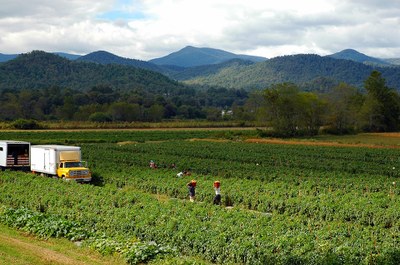About
Understanding the complete and diverse benefits society receives from nature as well as risks to their sustainability will allow managers, industry, and the public to adopt policies that encourage protection and investments in these resources. The Ecosystem Benefits and Risks site within the Appalachian LCC Web Portal serves as a clearinghouse for Appalachian ecosystem services knowledge and data, providing users with the tools they need to make informed resource management decisions that improve and sustain nature’s benefits to people. Pages under Ecosystem Benefits, Risks, Assessments, and Framework contain syntheses of regional ecosystem assessments, linkages for data resources, partner resources such as online decision support tools, published scientific literature, and a vision for creating new knowledge and tools for enhancing ecosystem service sustainability.
This resource is the first product of a collaborative effort between the Appalachian LCC and the US Forest Service. The goal of this effort is to link the values that society places on natural resources with threats to their sustainability, in a way that enhances natural resource management and conservation planning across the Appalachian landscape.
Building upon this online synthesis of existing knowledge and data, researchers are also undertaking new assessment research to better understand how Appalachian ecosystem services are changing as a result of urbanization, energy development, climate change, and other major drivers of rapid environmental change. This new work will produce maps, reports, and other products intended to assist partners in enhancing the capacity of Appalachian landscapes to provide important natural benefits to people.

- The Appalachian Landscape Conservation Cooperative serves a vast region, including parts of 15 eastern US states. Landscapes and the ecosystem services they provide within this region are highly diverse and vary from place to place.
In this video presentation, Lars Pomara of the U.S. Forest Service details the work behind assessing and inventorying ecosystem benefits and environmental threats throughout the Appalachians. Lars describes how the first phase of this research provides conservation partners, resource managers, and the public with a synthesis of existing knowledge about ecosystem services and threats to their sustainability. Building upon this first phase, researchers will develop new assessments to better understand how Appalachian ecosystem services have changed - and are likely to change - as a result of urbanization, energy development, climate change, and other major drivers of rapid environmental change.


























